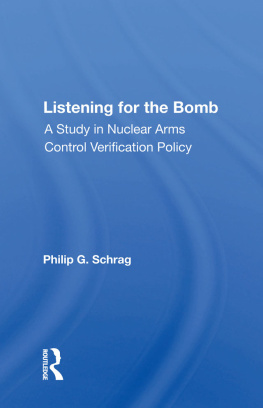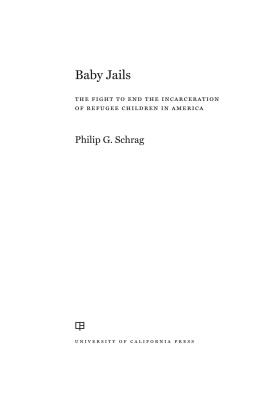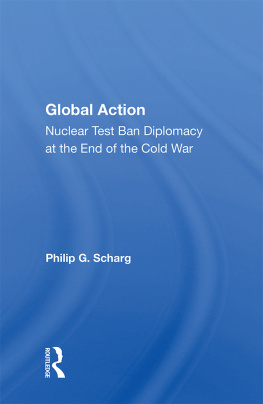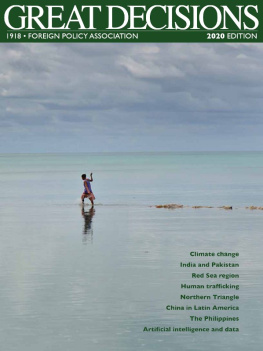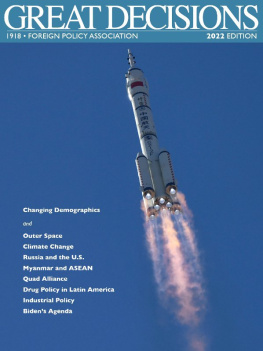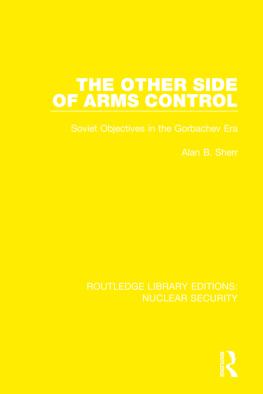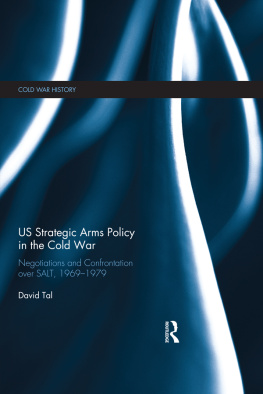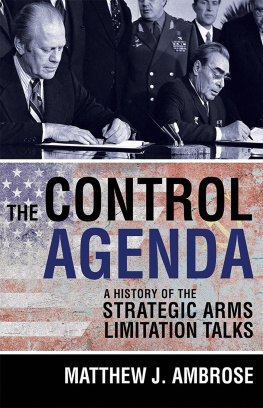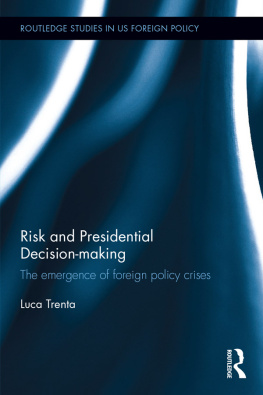First published 1989 by Westview Press, Inc.
Published 2018 by Routledge
52 Vanderbilt Avenue, New York, NY 10017
2 Park Square, Milton Park, Abingdon, Oxon OX14 4RN
Routledge is an imprint of the Taylor & Francis Group, an informa business
Copyright 1989 by the New York University Journal of International Law and Politics
All rights reserved. No part of this book may be reprinted or reproduced or utilised in any form or by any electronic, mechanical, or other means, now known or hereafter invented, including photocopying and recording, or in any information storage or retrieval system, without permission in writing from the publishers.
Notice:
Product or corporate names may be trademarks or registered trademarks, and are used only for identification and explanation without intent to infringe.
Library of Congress Cataloging-in-Publication Data
Schrag, Philip G., 1943
Listening for the bomb : a study in nuclear arms control verification policy / Philip G. Schrag.
p. cm.(Westview special studies in national security and defense policy)
Includes bibliographical references and index.
ISBN 0-8133-7702-1
1. Nuclear arms controlVerification. 2. Natural Resources Defense Council. 3. United StatesMilitary relationsSoviet Union. 4. Soviet UnionMilitary relationsUnited States. 5. United StatesMilitary policy. I. Title. II. Series.
UA12.5.S255 1989
327.1'74dc19
89-30319
CIP
ISBN 13: 978-0-367-01264-9 (hbk)
I am deeply grateful to Dr. Thomas Cochran, S. Jacob Scherr, and David Wirth of the staff of the National Resources Defense Council, to Walter Nicks of the University of Nevada-Reno, and to numerous federal officials for the substantial amounts of their time that they made available for interviews. I am also indebted to Frederick S. Young, my tireless research assistant, for his many labors in the library and in the field, and to Ellen Schaffer, Georgetown University's International and Foreign Law Librarian, for her help in tracking down documentary sources. I appreciate the many helpful suggestions on the manuscript made by Christopher Paine and by Professors Lisa G. Lerman, David A. Koplow, and Peter H. Schuck.
Philip G. Schrag
Georgetown University Law Center
Graham Allison's book Essence of Decision changed the way in which academic analysts think about how governments make major foreign and defense policy decisions.
Allison suggested that this classical mode of analysis is incomplete or even misleading, and that it often produced the conclusion that governments had become irrational or their decisions incomprehensible. Terming this type of thinking "Model I" or the "Rational Actor Model," Allison went on to describe two other ways of looking at governmental decisions. Drawing from the literature of organization and management theory, he described, as "Model II," an "Organizational Process" paradigm. The Model II analyst describes governmental decisions not as rational choices by governments or their leaders, but as the natural outcomes of standard bureaucratic operating procedures.
In chapters of his book which alternate with the theoretical exposition, Allison tested his theory with a case study of the Cuban missile crisis of 1962. Subsequent writers have applied the Allisonian models (or
Virtually all of the published studies have focussed on a foreign or defense policy decision or series of decisions that can be characterized as "major." These studies involve national or international crises,
This book applies the Allisonian framework to the response of the United States government to a private arms control initiative undertaken in 1986 by the Natural Resources Defense Council, an environmental organization. This case is a good one for several reasons. First, while it fits the criteria for second-level decisions,Council's effort. This curious response invites the analyst to see to what extent, if any, Models II and III can usefully contribute to understanding why the government acted as it did.
considers the models in terms of their contributions to understanding the government's actions in this case and speculates about the relatively greater significance of one of the models to other national security decisions of like magnitude. A postscript describes what happened to the NRDC project in the two years after the events that are the subject of this study.
Notes
G. Allison, Essence of Decision (1971). At the time he wrote the book, Allison was a professor at Harvard University. He later became Dean of Harvard's Kennedy School of Government. See Keller, Thinker-in-Residence Brought From Harvard, N.Y. Times, Aug. 15, 1985, at B8, col. 3. One commentator noted that "with the publication of his book this approach to foreign policy now receives its definitive statement. The bureaucratic interpretation of foreign policy has become the conventional wisdom." Krasner, Are Bureaucracies Important? in Perspectives on American Foreign Policy (1983). See also R. Coulam, Illusions of Choice: The F-Ill and the Problem of Weapons Acquisition Reform 6-34 (1977); I. M. Destler, Presidents, Bureaucrats, and Foreign Policy 52-82 (2d ed. 1974).
Allison quotes the works of such major figures as Hans Morgenthau, Stanley Hoffmann, Henry Kissinger, and Thomas Schelling, as well as significant journalistic analyses such as those of the New York Times. Allison at 10-26. He cites many typical examples of this kind of analysis, such as the following statement from A. Whiting, China Crosses the Yalu 159 (1960): "In sum, it was not the particular problems of safeguarding electric power supplies in North Korea or the industrial base in Manchuria that aroused Peking to military action. Instead, the final step seems to have been prompted in part by general concern over the range of opportunities within China's doorstep. At the least, a military response might deter the enemy from further adventures."
Allison at 13. A more detailed description of this "Model I" thinking appears at the beginning of Chapter 2.
For a more detailed description of Model II, see the beginning of Chapter 3.
R. Neustadt, Presidential Power (1960).
A more detailed account of Model III is set forth at the beginning of Chapter 4.
proved." Weil, Can Bureaucracies be Rational Actors? 19 Int'l. Stud. Quarterly 432, 433 (1975).
J. Steinbruner, The Cybernetic Theory of Decision (1974).
M. Halperin with P. Clapp and A. Kanter, Bureaucratic Politics and Foreign Policy (1974).
Allison and Morris, Exploring the Determinants of Military Weapons, Daedalus, Summer, 1975, at 99.

